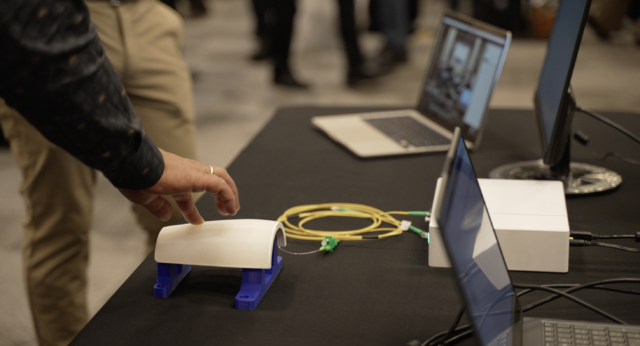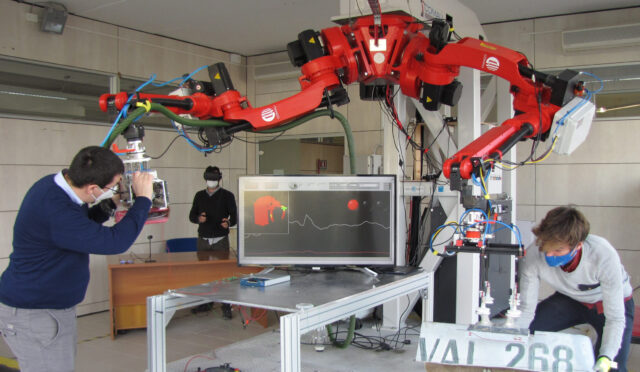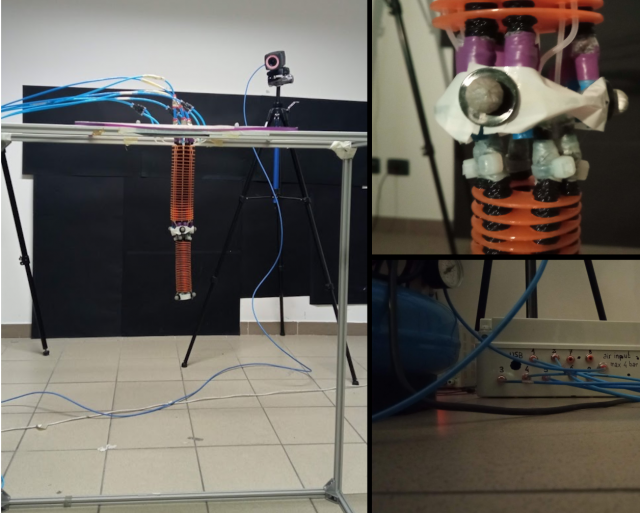HomeRobotic Database - Robotic platform | TERRINet

Engineered Arts – SociBot mini
SociBot Mini integrates the core technologies of RoboThespian in a desktop-sized robot. Extra ports and multiple Ethernet connections make it easy to interface with your choice of hardware. The projective head and fully articulated neck make SociBot even more expressive than its larger sibling. Ideal for individual researchers, small-footprint telepresence, or just for playing around with at home, SociBot offers a simple and affordable introduction to advanced robotics.SociBot can track the position of more than 12 people at a time, even in a crowd. It can also detect gestures like hand waves and body poses. The internal head projector can map any face onto any mould – talk to us about customizing your facial features and projection options. See our Technology section for more details.
Key features:
- Projected facial expression technology
- Integrated browser based IDE
- Wide choice of text to speech languages and voice variations (1 voice supplied as standard)
- High quality 20W audio output
- Facial motion capture
- Optional age, gender and expression estimation using SHORE TM
- Integrated HD webcam
- 3 powered head axis
- Integrated PC
- Integrated IR depth sensor for gestures
Possible applications:
- Development of Social Robotics
- Experimental Work with Visual Artefacts
- Development of Speech and Face Expression for Robot Output
Technical specifications
| No technical specifications specified. |
Access information
| Corresponding infrastructure | University of the West of England Ambient Assisted Living Laboratory |
| Location | Coldharbour Ln, Stoke Gifford, Bristol BS16 1QY, UK |
| Unit of access | Working day |
Access history
iRoniBot - Psychosocial Rehabilitation with a Humanoid Robot: Challenges and Perspectives
Maya Dimitrova
The main objective of the current project, is to perform a preliminary assessment of the potential of SociBot to be included as a co-therapist in psychosocial rehabilitation sessions.The model situation is counseling – a user seeks the help of a professional to cope with undesirable situations by learning new social skills and strategies and reformulation of their personal goals.
The robot assistant SociBot mini will be employed to help assess, communicate, reflect, remind, repeat and mirror personal experiences in order to enhance the process of self-controlled attitude shift – and support the effort of the therapist. Two scenarios will be prepared with SociBot mini playing the role of a cotherapist in a therapeutic session.
At the AALL only the scenarios will be developed and the videotaping of the robot will be performed, without any actual human-robot interaction study taking place. The study of saccadic eye movement and/or EEG during a counselling session with a humanoid robot will be performed at IR-BAS, Bulgaria.
Scientific: A clusterisation of robot behaviours will be proposed and their appropriateness for real life implementation in pedagogical and psychosocial rehabilitation settings will be tested. The clusterisation will be along psychological dimensions, implementable in the respective “social sensors”.
Societal: All knowledge and skills learned will be share with colleagues at IR-BAS. Future collaboration on joint projects or IR-BAS and AALL is also expected. IR-BAS has close connections, via the PR Office of the Bulgarian Academy of Sciences, with central and local media on the recent achievements in robotics with high societal value, www.ir.bas.bg. The institute is very well represented in the social media and will popularize TeRRINet with all available means.








